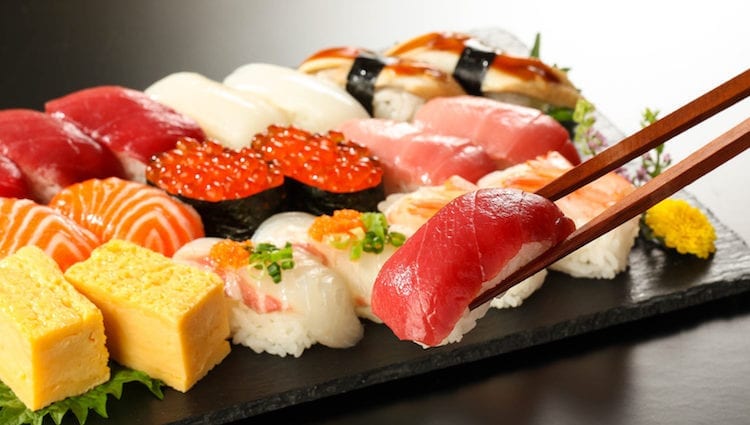At first, Japanese cuisine fascinated everyone with its uniqueness, and then raised a number of questions and overgrown with myths – they get fat from rice, they die from raw fish, and these dishes allegedly have nothing in common with Japanese cuisine. Where is the truth and where is the lie?
- Raw fish is dangerous
Any fish that is used for making rolls and sushi undergoes special processing by means of freezing. Such preparation allows you to leave useful vitamins in the product and prevent the formation of bacteria that can pose a danger to human health. The fish is cut in portions and only with a sharp knife, which allows you to preserve its structure and prevents bacteria from penetrating inside. All this applies, of course, to specialized restaurants, in which mandatory quality control of all ingredients is carried out.
- Sushi promotes excess weight
Sushi is not the most high-calorie meal of the day, if, of course, you are careful. One serving of sushi is 6-8 pieces, and the combination of carbohydrates, healthy fats and proteins in them is just very harmonious. Japanese food is very satisfying, so don’t rush to order a lot, wait until you feel full – and no extra weight is scary for you.
- Sushi and rolls are the same
The specifics of making sushi and rolls are different, although the ingredients are similar. Fish and other fillings wrapped in rice and nori are called rolls. And the fish that is placed on top of the rice is already sushi.
- Wasabi should be dissolved
There is a myth that wasabi should be dissolved in soy sauce before consumption. In fact, it’s not clear where this opinion came from – but wasabi is usually applied with a stick to sushi or roll. Its purpose is not only to enhance the taste, but also to disinfect fish – this Japanese mustard is a powerful antiseptic.
- Soy sauce can’t go bad
And it is true. Soy sauce is the second natural antiseptic that is important for serving sushi and rolls. It is made from soybeans, wheat, salt and water. Sealed in a glass dish, this natural sauce is stored for a very long time without losing its taste and useful properties.
- Sushi contains a lot of mercury
Fish, which is part of sushi, can indeed contain mercury, and no processing will destroy it. But just in sushi it is a small amount, if you do not overdo it with the amount and frequency of use. There is more mercury in predatory fish, as it feeds on all types of fish.










